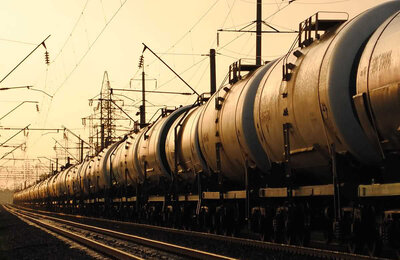05.02.24
Kazakhstan intends to boost oil deliveries through the Trans-Caspian International Transport Route or TITR to 3 million tonnes within two years, as per Interfax.
President Kassym-Jomart Tokayev in 2022 asked for oil transportation through the Trans-Caspian corridor to be increased. KazMunayGas and the State Oil Company of Azerbaijan (SOCAR) entered into an agreement providing for the shipment of 1.5 million tonnes of raw materials per year from the Tengiz field to Baku for further pumping through the Baku-Tbilisi-Ceyhan oil pipeline.
The throughput capacity of the Kazakh section of the CPC pipeline was increased from 54 to 72.5 million tonnes per year. "At the same time, active work is underway to expand the Shymkent oil refinery. As a result, its capacity will increase from 6 to 12 million tonnes per year, which will fully meet the needs of the domestic fuel and lubricants market," the press service added.
The construction of new gas processing plants in Kashagan, Karachaganak and Zhanaozen is in progress. "It is planned to build the second and third stages of the Saryarka gas pipeline, the Aktobe-Kostanay gas pipeline and the second train of the Beineu-Bozoy-Shymkent gas pipeline. For the development of petrochemical industry, construction of the Butadiene project $1 billion worth will begin this year," the press release says.
The projects for the production of polyethylene, polyethylene terephthalate and urea are being implemented in the Atyrau and Aktobe regions for a total amount of $13.7 billion.
New gas field are being put in operation. Thus, production has begun at the Rozhkovskoye, South Aksai and Anabay fields that have the recoverable reserves of over 31 billion cubic meters of gas. In the medium term, the launch of the Urikhtau Central, Western Prorva and Kalamkas gas fields with recoverable reserves of 69 billion cubic meters of gas is expected.
We remind, imports of polymer feedstock to Russia may grow in 2024, Petr Bazunov, General Director of the Russian Plastics Processors Association (RPPA). A number of processors in our Association have decided to increase imports, as imported raw materials in Russia are sold at prices equal or close to those of SIBUR. The principle of import parity or so-called netbacks is in effect. Refiners choose the raw materials that are more profitable for them.









